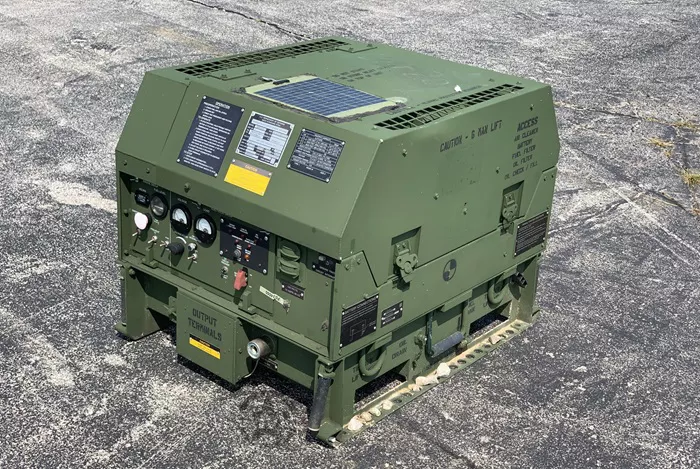When it comes to power generation, diesel generators are a reliable choice for homes, businesses, and construction sites. Understanding fuel consumption is crucial for budgeting and operational efficiency. This article delves into the specifics of diesel consumption in a 5kW generator, examining the factors that influence usage and providing insights into optimizing fuel efficiency.
Understanding Diesel Generators
Diesel generators convert diesel fuel into electrical energy through a combustion process. The engine burns diesel, which powers a generator that produces electricity. The efficiency of this process varies based on several factors, including load, engine design, and maintenance.
Components of a Diesel Generator
A typical diesel generator consists of the following components:
- Engine: The heart of the generator, responsible for combustion.
- Alternator: Converts mechanical energy into electrical energy.
- Fuel System: Stores and delivers diesel fuel to the engine.
- Cooling System: Maintains optimal operating temperature.
- Exhaust System: Channels exhaust gases away from the engine.
Understanding these components can help users better appreciate how fuel consumption varies with different loads and operational practices.
Fuel Consumption Metrics
To accurately assess how much diesel a 5kW generator uses, it’s essential to consider several key metrics:
Fuel Consumption Rate
The fuel consumption rate of a generator is typically expressed in liters per hour (L/h) or gallons per hour (GPH). A 5kW diesel generator generally consumes between 0.5 to 1.0 liters of diesel per hour at full load. However, this rate can change based on the load applied to the generator.
Load Variability
The load on a generator significantly affects fuel consumption. Diesel generators are more fuel-efficient when operating at their optimal load. For example, if a 5kW generator is running at 50% capacity (2.5 kW), it may consume less fuel than when running at full capacity due to decreased strain on the engine.
Specific Fuel Consumption (SFC)
Specific Fuel Consumption (SFC) is a metric that indicates the fuel efficiency of the generator, typically measured in grams of fuel consumed per kilowatt-hour (g/kWh). For a 5kW diesel generator, a typical SFC might range from 200 to 300 g/kWh. Therefore, if the generator runs for one hour at full load, it may consume approximately 200 to 300 grams of diesel per kilowatt-hour produced.
Factors Influencing Diesel Consumption
Several factors can influence how much diesel a 5kW generator consumes. These include:
Engine Efficiency
The design and condition of the engine play a crucial role in fuel consumption. Well-maintained engines that are designed for efficiency will use less diesel compared to older or poorly maintained models. Regular servicing, including oil changes and air filter replacements, can improve engine efficiency.
Ambient Conditions
Environmental factors, such as temperature and altitude, can also affect fuel consumption. Generators may operate less efficiently in extreme temperatures, which can lead to increased fuel usage. For instance, engines may consume more fuel in high altitudes due to lower oxygen levels, which affects combustion efficiency.
Operating Time
The longer the generator runs, the more diesel it will consume. However, it’s essential to balance operational time with the need for power to avoid unnecessary fuel expenditure. Monitoring usage can help optimize running times and reduce overall fuel costs.
Calculating Fuel Costs
To determine the operational cost of running a 5kW diesel generator, users can calculate the fuel expenses based on the current diesel price and the generator’s consumption rate.
Example Calculation
Assuming a fuel consumption rate of 0.75 L/h at full load and a diesel price of $1.50 per liter:
- Fuel Consumption Per Hour: 0.75 L/h
- Cost Per Hour: 0.75 L × $1.50/L = $1.125
Thus, running a 5kW generator at full load would cost approximately $1.13 per hour in diesel fuel.
Optimizing Fuel Efficiency
To reduce diesel consumption and operational costs, consider the following strategies:
Regular Maintenance
Maintaining the generator in optimal condition is vital for fuel efficiency. Regular checks on the engine, filters, and coolant levels can prevent excess fuel usage.
Load Management
Running the generator at or near its rated capacity can improve efficiency. Avoiding unnecessary power loads and turning off equipment not in use can help manage fuel consumption effectively.
Using High-Quality Diesel
Using high-quality diesel fuel can enhance combustion efficiency. Contaminated or low-grade fuel may lead to increased fuel consumption and potential engine damage.
see also: TOP 3 Whole Home Generator in 2024
Conclusion
In summary, a 5kW diesel generator typically consumes between 0.5 to 1.0 liters of diesel per hour, influenced by factors such as load, engine efficiency, and environmental conditions. Understanding these elements allows users to make informed decisions regarding generator operation and maintenance, ultimately leading to cost savings and improved efficiency.
By regularly maintaining your generator and managing loads effectively, you can optimize fuel consumption and ensure reliable power generation for your needs.
FAQs:
How often should I service my diesel generator?
Regular servicing is recommended every 100-200 hours of operation, or at least annually, to maintain efficiency and reliability.
What type of diesel fuel is best for generators?
Ultra-low sulfur diesel (ULSD) is preferred for modern generators, as it reduces emissions and supports engine longevity.
Can a 5kW generator run continuously?
Yes, a 5kW generator can run continuously, but it is advisable to allow for breaks and regular maintenance to prevent overheating and wear.
How long can a 5kW generator run on a full tank of diesel?
The runtime depends on the fuel tank size and consumption rate. For example, with a 25-liter tank and a consumption of 0.75 L/h, it could run for approximately 33 hours at half load.
Is it safe to operate a diesel generator indoors?
No, diesel generators should not be operated indoors due to the risk of carbon monoxide poisoning. Always use generators in well-ventilated outdoor areas.
Related topics:
- What is an Emergency Diesel Generator?
- What Are Diesel Generators on Ships?
- 11 Best Portable Gas Generators for Home Use

